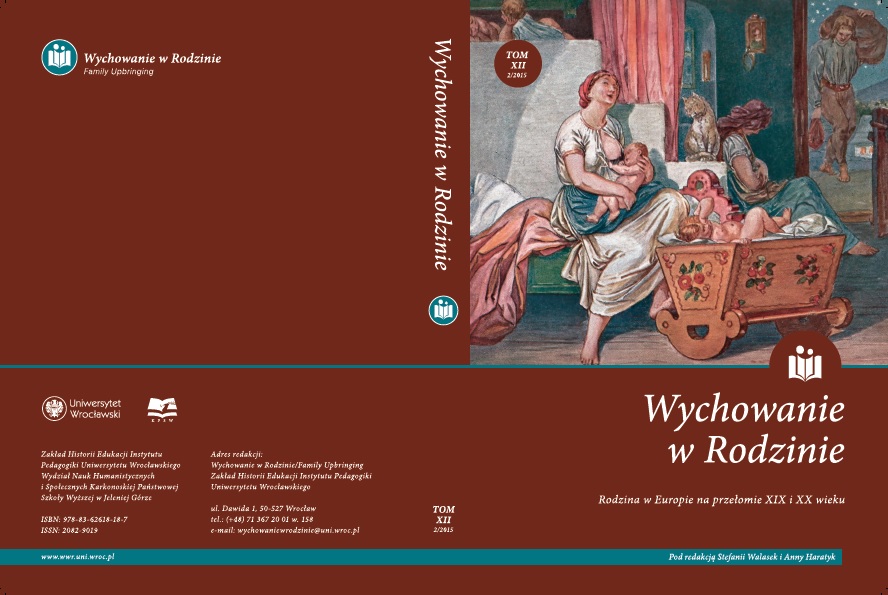Wychowanie politycznie zaangażowane, czyli hiszpańska rodzina doby frankizmu. Portret filmowy
Upbringing politically involved, or family in Francoist Spain. Film portrait
Author(s): Anna OlchówkaSubject(s): History, Social Sciences, Fine Arts / Performing Arts, Sociology, Family and social welfare, Film / Cinema / Cinematography
Published by: Zakład Historii Edukacji w Instytucie Pedagogiki Uniwersytetu Wrocławskiego
Keywords: Spain; Francoism; family; upbringing; film
Summary/Abstract: A look at the family portrait in Francoist Spain provides valuable information concerning the Spanish upbringing style and its relationship with the state ideology. A regime of Estado Nuevo (1939–1975) evolved from German and Italian fascism modelsto national-catholic autoritharianism, and marked all spheres of political, economic and social life. The dominant patriarchal family model, a woman’s role limited to house hold duties and her spouse’s will, or aggressively promoted by the authorities role models defined for many decades not only the Spanish upbringing style, but also the shape of relationships between family members. The values and norms passed to the youngest had to match the governmental reality, and due to this control, at the stage of primary socialization young people became recipients of propaganda content. From that momentit was constantly presentat every stage of education and professional life of the Spanish nation. As it was in other totalitarian countries, in Spain film was used as a propaganda tool. With the growing interest and availability of this entertainment form, cinema has become a perfect and effective communication and agitation medium. A domestic productionwas subjected to full control because of the compatibility of the presented content with current ideology, and censorship took care to save the Spanish audience from Western patterns of “depravity and extravagance”. With this background, analysis ofthe motive of family in selected Spanish films from the Francoist period allows observation of a political involvement of the family and educational processes and phenomena.
Journal: Wychowanie w Rodzinie
- Issue Year: XII/2015
- Issue No: 2
- Page Range: 419-428
- Page Count: 10
- Language: English, Polish

